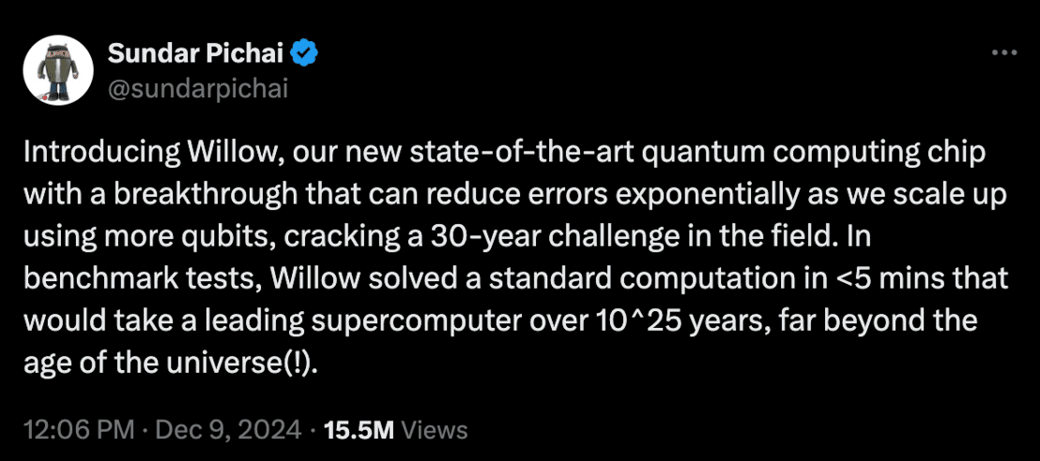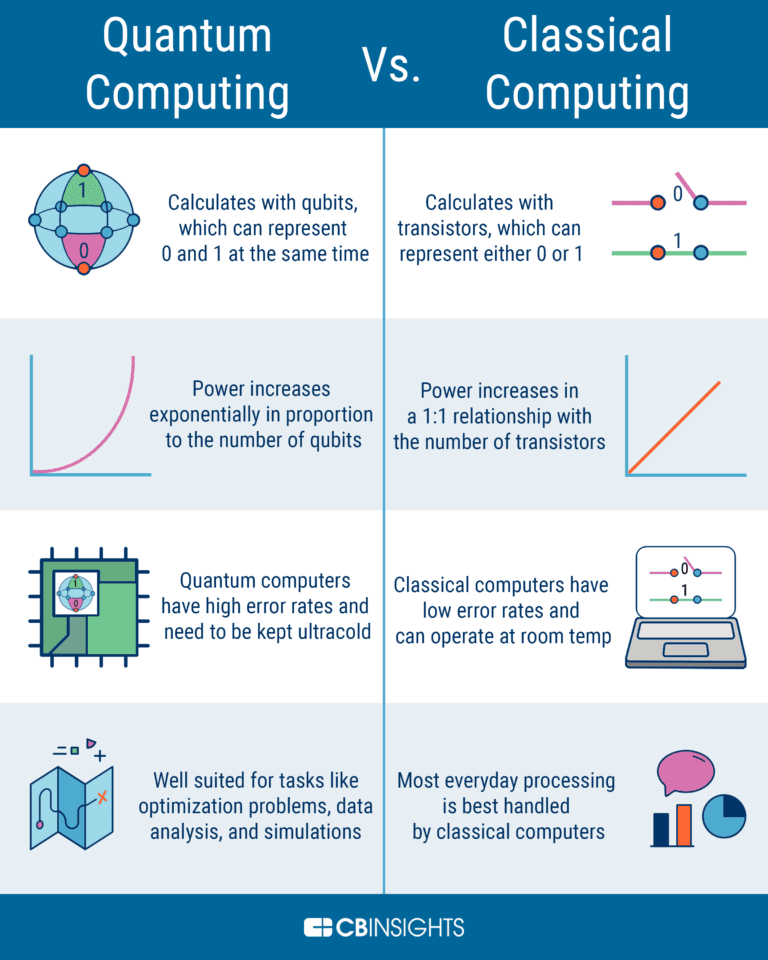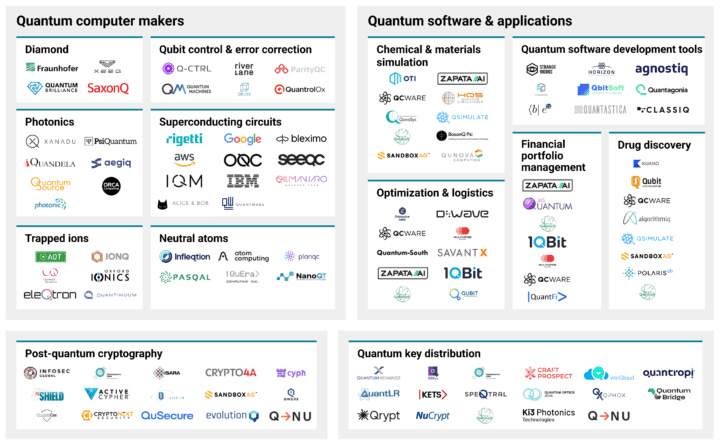Quantum Computing Meets Generative AI: Google's Willow Chip and the Future of Innovation
Breaking the Limits of Computing
Google's recent unveiling of the Willow quantum chip is groundbreaking. CEO Sundar Pichai called it a “breakthrough” on X, triggering a 6% leap in Alphabet's shares. But what does this mean for business leaders, creative professionals, and industries already leveraging generative AI? Could quantum computing reshape the AI landscape, or is it too far out of reach? Let’s dive in.
What Is Quantum Computing?
Quantum computing processes information using qubits rather than classical bits. Unlike bits, which are binary (1 or 0), qubits can exist in a superposition — a probability of being both 1 and 0 simultaneously. This unique feature enables quantum systems to handle exponentially larger data spaces and tackle problems classical computers cannot efficiently solve.
Google's Willow chip, for example, reportedly solved a problem in seconds that would take a supercomputer 10^25 years, longer than the universe's age.
Source: CB Insights, December 2024
Why Does This Matter?
Quantum computing is poised to revolutionize how industries handle computational challenges. Areas that could see a dramatic impact include:
Drug Discovery: Simulating molecular interactions at an unprecedented scale.
Finance: Optimizing portfolios and detecting fraud with lightning speed.
Materials Science: Designing new materials with desired properties faster than ever.
Logistics and Supply Chain: Solving complex routing and scheduling problems.
The business potential is immense — especially in domains that require vast simulations or optimizations.
Generative AI and Quantum: A Relevant Pairing?
Generative AI thrives on deep neural networks and vast data sets, excelling in creating images, text, and music. The question is whether quantum computing could make these systems faster, more efficient, or capable of tasks beyond the reach of current architectures. Here are some ways the technologies could intersect:
Enhanced Model Training
Generative AI models require immense computational power to train. Quantum computing could:
Reduce training time from weeks to hours.
Handle larger and more complex datasets, enabling more prosperous, more realistic outputs.
New Generative Algorithms
Quantum systems could unlock entirely new classes of algorithms. For instance:
Quantum-inspired approaches could create more complex simulations of natural phenomena, improving tools like DALL·E or MidJourney.
New models might be able to understand nuanced quantum mechanics or molecular structures for scientific content generation.
Secure AI
As quantum computers advance, they also pose a threat to traditional encryption. Generative AI systems dealing with sensitive business data could leverage quantum-safe cryptography to protect against potential breaches.
Where Is the Quantum Industry Today?
Quantum computing is still in its infancy, but the momentum is unmistakable:
Global venture capital funding reached $1.5 billion across 100+ deals last year.
Major players like Quantinuum (backed by JP Morgan) and IBM are racing to commercialize quantum technologies.
Governments and enterprises have already invested in post-quantum cryptography to prepare for future threats.
Google’s Willow marks a significant step forward in addressing a critical challenge: reducing error rates as qubits scale. While full-scale commercialization may be years away, the industry is steadily progressing.
Source: CB Insights, The Quantum Information Landscape, December 2024
Implications for Business Leaders and Creatives
For executives, marketers, and creatives working in AI-driven industries, quantum computing holds enormous promise. Here's why you should keep an eye on this space:
Strategic Edge: Early adopters of quantum-powered AI could lead in innovation, offering faster, more cost-effective solutions.
Competitive Landscape: As capabilities grow, new players will emerge, disrupting existing markets.
Resilience: Quantum-safe technologies will become essential to safeguard AI models and data from future threats.
Quantum computing isn’t just about hardware; hybrid models are emerging, where quantum systems work alongside classical supercomputers. This approach allows businesses to explore quantum advantages without waiting for fully operational quantum computers.
Google’s Willow chip is a milestone, not the destination. Quantum computing is still in its developmental stages but shows promise for transforming generative AI. While immediate applications may be limited, businesses that understand the quantum landscape now will be better positioned to capitalize on its potential tomorrow.
For leaders and innovators, the message is clear: Stay informed, invest in research, and prepare for a quantum-enabled future. The intersection of quantum and generative AI may be the next frontier of creativity and efficiency.




